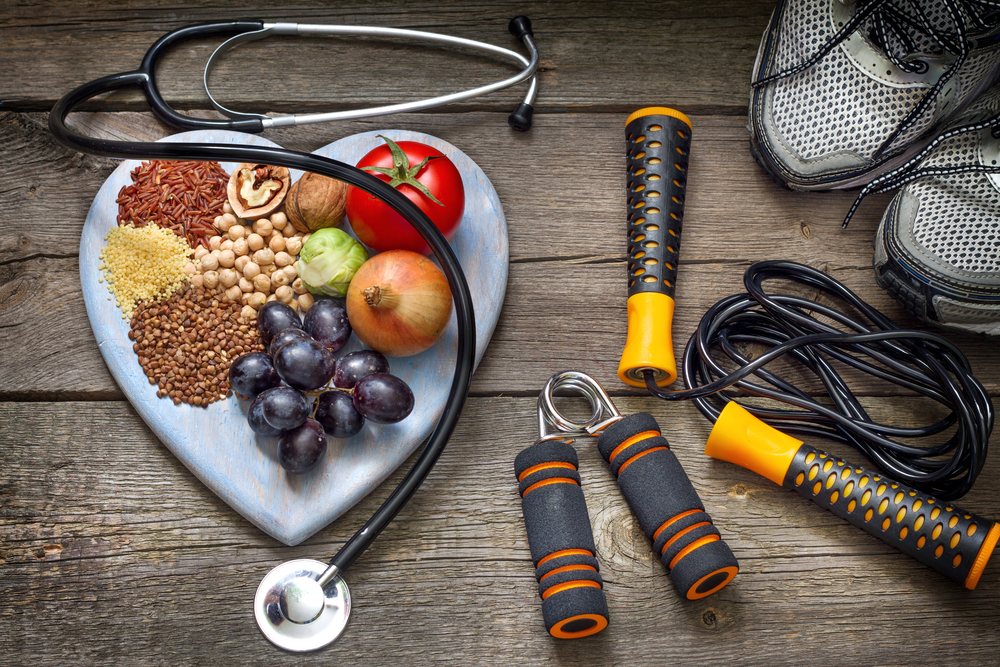A triathlete needs to be in optimal fitness and health in order to succeed in their race.
The way that you choose to fuel your body in day-to-day life will have an enormous impact on your training and performance. You should be eating at least 3 well-balanced meals per day with between 1 and 5 snacks, depending on your activity level.
During training periods and off-season, your diet will remain fundamentally the same, although you should alter quantities accordingly. You will need less fuel during the off-season as you will not be expending as much energy.
Generally speaking, you should try to base your diet around whole foods. The bulk of your caloric intake should come from healthy and nutritious foods that are minimally processed.
This does not mean that you must cut all snacks out of your diet, just enjoy them in moderation. It is important to try and keep your body at a healthy weight to ensure optimal performance in the triathlon.
It is often wise to keep an eye on your macronutrients. The big three to pay attention to are carbohydrates, fats, and proteins. There are no set quantities for each, but over time you will learn the ratio that suits you and your body the best.
Every person will have different nutritional requirements according to their genetic makeup, medical conditions, and personalized training plan.

What do triathletes eat during a race?
After you pass the 30 to 45-minute mark of exercise, it is a good idea to begin to add in some carbohydrate-based fuel. This will help your muscles to keep working and allow you to make it through the rest of the race.
You will not need the fuel this early on, but starting early helps to activate your digestive system.
For each hour of exercise, you should attempt to ingest between 30 and 60g of carbohydrates. This will extend the time you can last before you begin to hit the wall. The carbohydrates should be from a very easily digestible source.
Great examples include glucose tablets or gels, sports drinks, shot blocks, and gummy sweets. If you prefer less processed sources, opt for bananas, figs, or raisins.
Not all athletes will eat like this. Some prefer to follow a ketogenic diet, where their fat intake is much higher. These athletes will not need to eat as much during races as their bodies have adapted to be able to burn more fat as a fuel source.
It is absolutely vital to remain hydrated during a triathlon. If your exercise is likely to last for longer than an hour, or if the weather is very hot, you should drink a sports drink. These contain good quantities of sodium and electrolytes to replenish what you will have lost while exercising.
If you sweat a lot and do not replenish your sodium levels but continue to drink, you can experience hyponatremia.
This is when your blood sodium levels drop dangerously low and can cause you to faint.
What should I eat after a triathlon?
It is very important to fuel your body adequately after a triathlon. This is vital to repair your muscle fibers and replace your energy stores within the body.
Within ½ an hour to an hour of finishing your race, we recommend eating carbohydrates and protein. To work out the best amount for you, use the ratio of 1 - 1.2g carbohydrates per kilogram of body weight.
If you weigh 120 pounds (54.4kg) you will need 54.4 - 65.3g carbohydrates combined with 15 - 25g of protein.
This advice varies as you age. Older athletes have a higher protein requirement as the body struggles to repair itself as effectively. They should ingest around 25 - 30g of protein as a post-workout meal.
The protein is broken down into amino acids which are then used in the body for muscle recovery and rebuilding.
It is a good idea to incorporate an EPA supplement into your diet. This will help to limit the production of cytokines which is increased through strenuous exercise.
If they reach high levels then protein breakdown is increased and protein synthesis is reduced. It can be hard to get the correct amount of EPA from food, so it is recommended that you take a supplement of 1 - 2g EPA daily.
Tart cherry juice or other foods high in antioxidants can reduce muscle soreness and inflammation.
What should I eat when training for a triathlon?
A sample meal plan for triathlon training is shown below. This is just a rough idea and can be modified to suit your nutritional needs more closely.
You should try and ensure that you consume a pre-workout meal around 1-4 hours before you work out. If you eat too soon before you train you are likely to have stomach issues and may throw up.
If you leave it too long between eating and training then you may not have sufficient energy for the exercise. Again, you will work out the timings that work best for you.
Your pre-workout meal should be high in carbohydrates that are easy to digest, such as white rice, toast, sweet potatoes, and bananas. It should contain a moderate quantity of protein, and low amounts of fat and fiber.
A good pre-workout meal can be something light such as a bagel with peanut butter, a fruit smoothie, or toaster waffles topped with maple syrup and berries.
If you are after something more savory, try quinoa or sweet potato with poached eggs, pasta in marinara sauce, or chicken and rice.
Sample meal plan
Breakfast - berry oatmeal with ½ water and ½ milk, topped with almonds or chia seeds
Snack - fruit, cottage cheese, and whole-wheat crackers
Lunch - roasted vegetable and tofu pita pocket with sweet potato and a healthy cereal bar
Snack - apple and peanut or almond butter
Training - electrolyte sports drink
Dinner - pasta with vegetables, protein (meat or beans), and a tomato-based sauce
Dessert - berries and a small handful of dark chocolate chips
